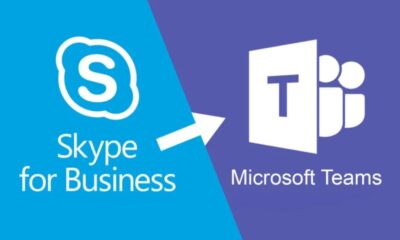Business
Budget-friendly Strategies for Market Research When Starting a Business

Big brands are typically linked to market research, which frequently spends millions researching the size, competition, and demand of the market. Despite this, a lot of small businesses, startups, and entrepreneurs can conduct market research on a very tight budget.
Let’s start by discussing the significance of market research. The market, pricing, product or service, consumer, competition, promotion, distribution, and so forth may all be learned from it. Actually, “no market need” is the primary cause of most business failures, and we believe that the majority of these companies most likely did not take “market research” seriously. In light of this, how should budget-conscious market research be planned and carried out?
Identify the Problem or Opportunity
What opportunity or issue are you attempting to solve? If you are considering starting a business, you most likely already have a concept in mind. You should write down your ideas before considering market research.
Various Types of Market Research
Your initial study should concentrate on one or two types of market research because of your limited budget.
- Product: looks at what you’re selling and how it stacks up against comparable products on the market.
- Customer: Look at your target markets, segmentation, customers, and what it takes to attract a customer to switch to your brand.
- Pricing: Examine the prices, discounts, and pricing strategies that your competitors use.
- Promotion: looks at what your competitors are doing to promote themselves. How do they promote themselves? How frequently do they advertise? Which goods do they advertise the most? How do they stack up against your marketing campaigns?
- Distribution: Look into ways to get your service or product on the market. Are there any intermediaries? Which channels—direct or indirect—will you use? What will set your distribution apart from that of your competitors?
Primary Research vs Secondary Research
Since primary research will be customized to meet your specific needs, it is typically costly. Doing focus groups, interviews, and product testing, for instance, guarantees that your data is current and first-hand. However, because secondary research uses data that has already been gathered by a third party, such as public records, trade associations, libraries, and so forth, it is less costly.
However, if your friends and family are ready to assist, primary research can be done on a tight budget. Just a heads up: if you haven’t done focus groups or interviews before, you’ll probably ask leading questions, which should instantly rule out the responses. Additionally, because they are inherently prejudiced, your friends and relatives can assist you with market research but shouldn’t be involved.
Establishing Minimum Requirements
You have to make concessions when your budget is tight. What is the bare minimum of information required for reaching a conclusion? How big of a sample should that be? Do you need to interview 50 or 500 people, for example? How many trade associations or public records must you look up? More is obviously preferable, but your market research budget will rapidly become out of control if you don’t set reasonable limits.
Some ideas for collecting information
- Face-to-face and Telephone Interviews
- Informal Focus Groups
- Mystery shopping
- Online Polls
- Questionnaires
- Product tests
- Chambers of commerce
- Business libraries
- Magazines
- Trade directories
- Publicly available marketing research findings/data
- Census data
- Public Records
- Omnibus surveys
Conclusion
When assessing if there is a market for your product or service, market research is important. Consequently, 99.99% of businesses ought to carry out market research. The remaining 0.01% ought to be set aside for innovators who launch goods or services before their time. However, likely, your products or services aren’t groundbreaking, so do market research to increase your company’s chances of success. Since we live in the information age, the majority of information is accessible and reasonably priced.
-

 Business2 weeks ago
Business2 weeks agoNayef Doleh Examines International Humanitarian Fundraising Strategies
-

 Business3 weeks ago
Business3 weeks agoHow Black Banx is Redefining Global Banking Strategies in 2025
-

 Business2 weeks ago
Business2 weeks agoHow to fill MSME Form 1? Step-by-Step Guide
-

 Tech4 weeks ago
Tech4 weeks agoHow to Switch Between Microsoft Teams and Skype, How To Export Messages, Files, and Contacts from Skype Before It Shutting Down
-

 Tech3 weeks ago
Tech3 weeks agoMicrosoft Teams to End SMS Messaging Feature Support for Android Phones and Switch to Phone Link App as Alternative
-

 Education4 weeks ago
Education4 weeks agoSchool Of Odd Thinkers – Think Odd, Learn a lot, and Earn a lot
-

 Education3 weeks ago
Education3 weeks agoThe Power of Differentiated Instruction: Patrick Granfar Discusses Its Impact on Student Learning
-
Business2 weeks ago
From Marine to Chief: The Leadership Journey of Sean Mannix























